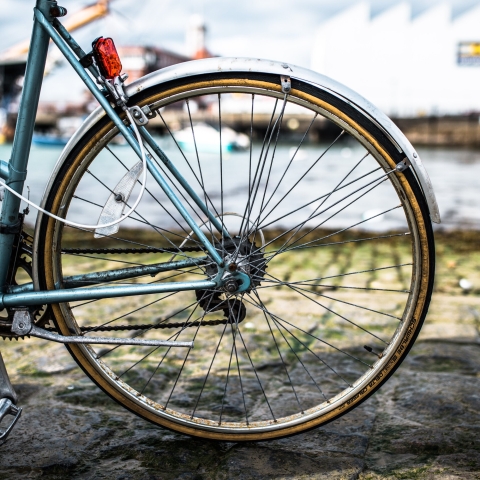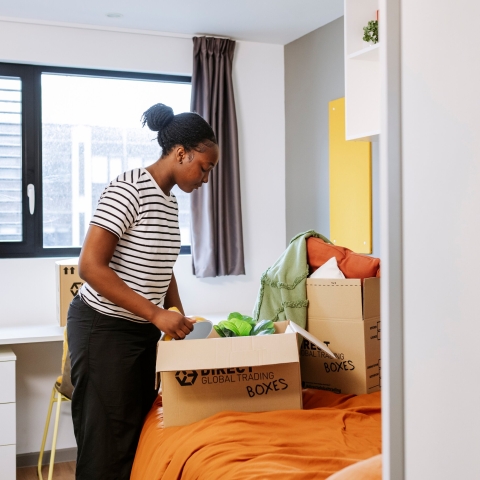
Do more to help the environment while you're at uni by living sustainably. The choices you make can help the planet and save you money.
Use our guides to discover how to reduce your waste, eat eco-friendly, clean your halls or shared house with natural products, shop locally and combat climate change.
Our sustainability guides
Recycling in Portsmouth
One of the easiest things you can do to be sustainable at uni is reduce and recycle your waste.
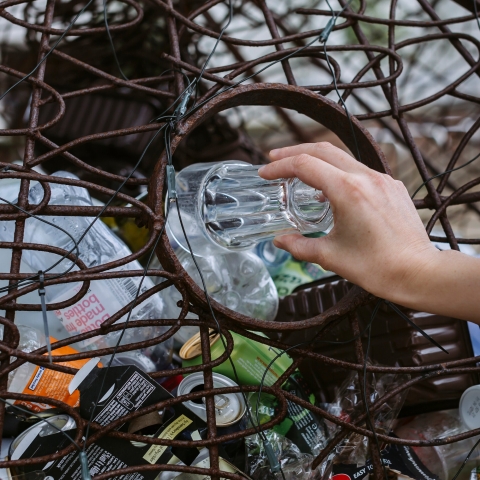
Shop secondhand, reduce consumption and save money
Buying secondhand is a great way to live sustainably at uni. Every year students change accommodation and donate their furniture and clothes to charity shops. You'll also find secondhand items for sale online through Facebook marketplace or Gumtree.
Pre-loved clothes
Check out websites and apps like Vinted, DePop, ThriftPlus, Thrifted and many more.
Or if you prefer to shop in person, Palmerston Road in Southsea and London Road in North End have many charity shops perfect for clothes shopping.
Why: Buying secondhand means less energy is used to create new products and fewer clothes end up in landfills. It's a budget way to dress individually and add to your wardrobe based on what you love, rather than what's on sale in shops at the time.
Electronics
Instead of buying new, look into purchasing remanufactured or refurbished devices, which are significantly cheaper and have a much lower carbon footprint. Sites like Backmarket are a B Corp and offer a student discount.
Locally Repair Cafe Portsmouth and Landport PC Repair Shop can also help repair or recycle your malfunctioning or broken devices.
Why: The manufacture of laptops, tablets and smartphones uses a lot of resources and has a destructive impact on the natural world.
Second hand books
There are now many ethical online book stores:
Why: You'll probably get through a lot of books in your time at uni. Rather than buying from big online retailers, you can buy second hand to save money and reduce your impact on the environment.
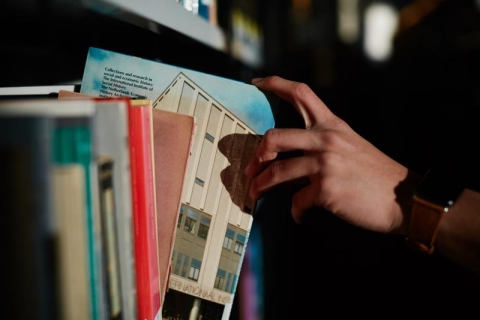
Used furniture
Personalise your bedroom by decorating it with one-off pieces found in local charity shops that specialise in furniture:
- DEBRA, 51-55 Elm Grove, Southsea
- British Heart Foundation, 11-15 Arundel Street, Portsmouth, PO1 1NB
- Sue Ryder, Unit 8A, The Pompey Centre, PO4 8FD
Why: New furniture can be really expensive, and uses up a lot of resources to make. Why not pick up something second hand - and older furniture can often be more sturdy and reliable too!
Mend your clothes
Find out how to fix your clothes and learn a new life skill by attending a craft workshop. Southsea Sustainable Textiles run free workshops where you can learn to patch over holes, sew on new buttons, upcycle fabric and much else besides. Or you can get help at the Portsmouth's Repair Cafe.
Why: If you have clothes that could be repaired instead of thrown away, you could save a fortune - plus get more life out of that favourite dress or top!
Borrow, not buy
A Library of Things is like a normal library but for tools and equipment, rather than books. Borrow anything from a kitchen blender to a carpet cleaner. Anyone can join the local hub for just £1, and then hire items rather than buy ne.
Or if you need something as a one-off - whether it’s fancy dress, party decorations, or a bike pump - why not see if a mate has some you can borrow to save you the hassle of buying.
Why: Saving money and lower your carbon footprint. by borrowing what you don't need to keep. Plus you don’t have the hassle of storing equipment you don’t use very often.
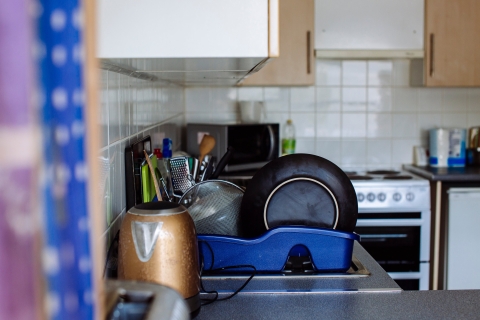
Reduce packaging and buy greener products
When you're out shopping, you can find shops and products that minimise the amount of uneccessary packaging, but also offer more eco-friendly options
Go package free
Join Portsmouth’s Zero Waste Community and bring your own containers and bags to buy stuff at our city’s many zero waste friendly shops.
Why: You can reuse existing jars, bags and containers to get exactly the amount of a product that you need. Plus these package free shops are great for bulk buying stuff you can store, like dried pasta and laundry liquid.
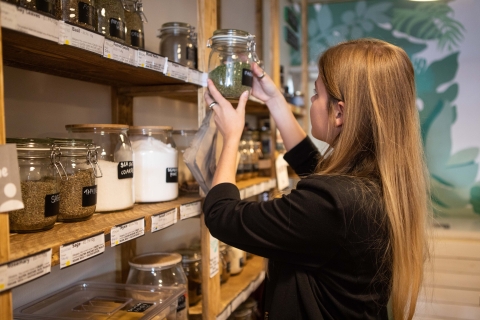
Sustainable toiletries and accessories
When you're packing for uni and stocking up your bathroom essentials, look for block shampoos and soaps rather than liquid soaps that come in plastic bottles. Treat yourself to new flannels or linen face towels, rather than disposable make-up wipes, and a sisal soap bag instead of a plastic soap puff.
Why: Swapping out your toiletries is an easy way to cut down on your single use plastic and throwaway products.
Environmentally-friendly cleaning
Eco-friendly cleaning products are a great way to use natural ingredients, reduce plastic bottles use and keep your bedroom smelling fresh. Keep a stock of vinegar, lemons, essential oils and baking soda and you'll be ready to clean your windows, wood furniture, dirty drains and bathrooms whenever they need it.
Why: Strong chemicals can be bad for our water supplies and our health - and cheap alternatives are often available that can be used all over your home.
Get rid of what you don't need responsibly
When you don't need something any more, or its time to move out of your student house, you might find yourself with stuff you need to dispose of. You can give it a new lease of life, or even make some money back.
Give away clothes you don't wear any more
You might find your style changes a lot during your time at uni.Keep your eye out for clothes swaps taking place in the Students' Union or the community.
And donate clothes you grow out of to a local charity shop or textile bank. There's no shortage of textile banks across the city, including in Winston Churchill Avenue and Elm Grove. Find out where your nearest textile bank is on the Portsmouth City Council website.
Why: Clothes make up a big part of the amount of waste we produce, so make sure they have a new life when you're finished with them.
Sell your old stuff
Anything in good working order that you don't need any more in your student house can find a new home and you can make a bit of cash back. Check out our tips for selling your old kitchen pots and pans, room decor or books, when you move out.
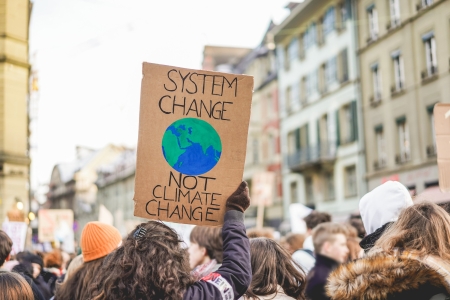
Get involved in climate action in the community
If you're passionate about climate change, there are already many climate champions already working to green Portsmouth.
Why not find out if there's a business, a community group or other organisation with a campaigning focus that you can get involved in during your time at uni.
Enable University alerts
Turn on notifications for critical updates like closures, safety alerts, and urgent service disruptions.







